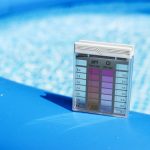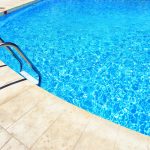What Should I do with my Commercial Pool during Stay at Home Orders?
With Memorial Day (aka the unofficial start of summer) just a little over a month away, many commercial or public pools are concerned what to do with their pools. Some pools have been mandated to remain closed by local health departments, some are remaining closed by the directive of staff or boards, and others are gearing up for opening.
The good news is the Center for Disease Control (CDC) states that: “There is no evidence that COVID-19 can be spread to humans through the use of pools and hot tubs. Proper operation, maintenance, and disinfection (e.g., with chlorine and bromine) of pools and hot tubs should remove or inactivate the virus that causes COVID-19.” However, people that use your pool can spread COVID-19 to other people through human contact and transmission onto surfaces like handrails and ladders. This is why large gatherings have still been banned for now.
Since gatherings have been banned, most pools and spas are closed for use. These pools and spas may still have water in them. For spas, draining them would be the best option for now. You do need to be aware of water tables at your facility to ensure fully draining is an option. We do not recommend fully draining pools though. For pools that are full with water, indoor or outdoor, it is best to keep your filtration system on all the time. This will ensure that the water is being treated and circulated which is what will prevent algae from forming and bacteria from breeding. It is recommended to maintain sanitizer levels as high as legal limits will allow. Since the pool is not being used by patrons, levels will not be affected as much as new contaminants are not entering the pool as often, especially on indoor pools. If a staff member is still maintaining the pool, you want to ensure surfaces are being disinfected regularly, water chemistry is balanced, and water clarity is maintained. Inspecting the facility is always recommended on a daily basis. You want to maintain proper documentation noting these inspection findings. During this time, you do not need to utilize heaters, specialty features, and supplemental oxidation systems.
If you have not started the opening process and your pool is covered, the longer the pools sits in this closed state the greater potential for algae development. Some tips you can take to potentially eliminate or minimize this growth for when we can open the pools:
- Remove water and debris from pool covers, if your pool is covered
- Lift the cover and manually add chlorine to help sanitize and oxidize contaminants
- Consider putting some algaecide in as a preventative, or combatitive, measure
- Don’t forget to maintain pH and alkalinity levels as well to ensure the sanitizer is effective
This is certainly a difficult time for all of us, and we all want to get back to some level of normalcy soon. One take away from this may be that our patrons may now understand the importance of practicing good hygiene and we will see an increase in bathers taking soap showers before getting into the pool. With our facilities closed, it is also a great time to get documentation in order and train staff (virtual options). It is also a great time to consider upgrades and repairs as many states have deemed pool maintenance essential. By taking the time now to safely maintain our pools, hopefully we can get a step ahead and open soon!






